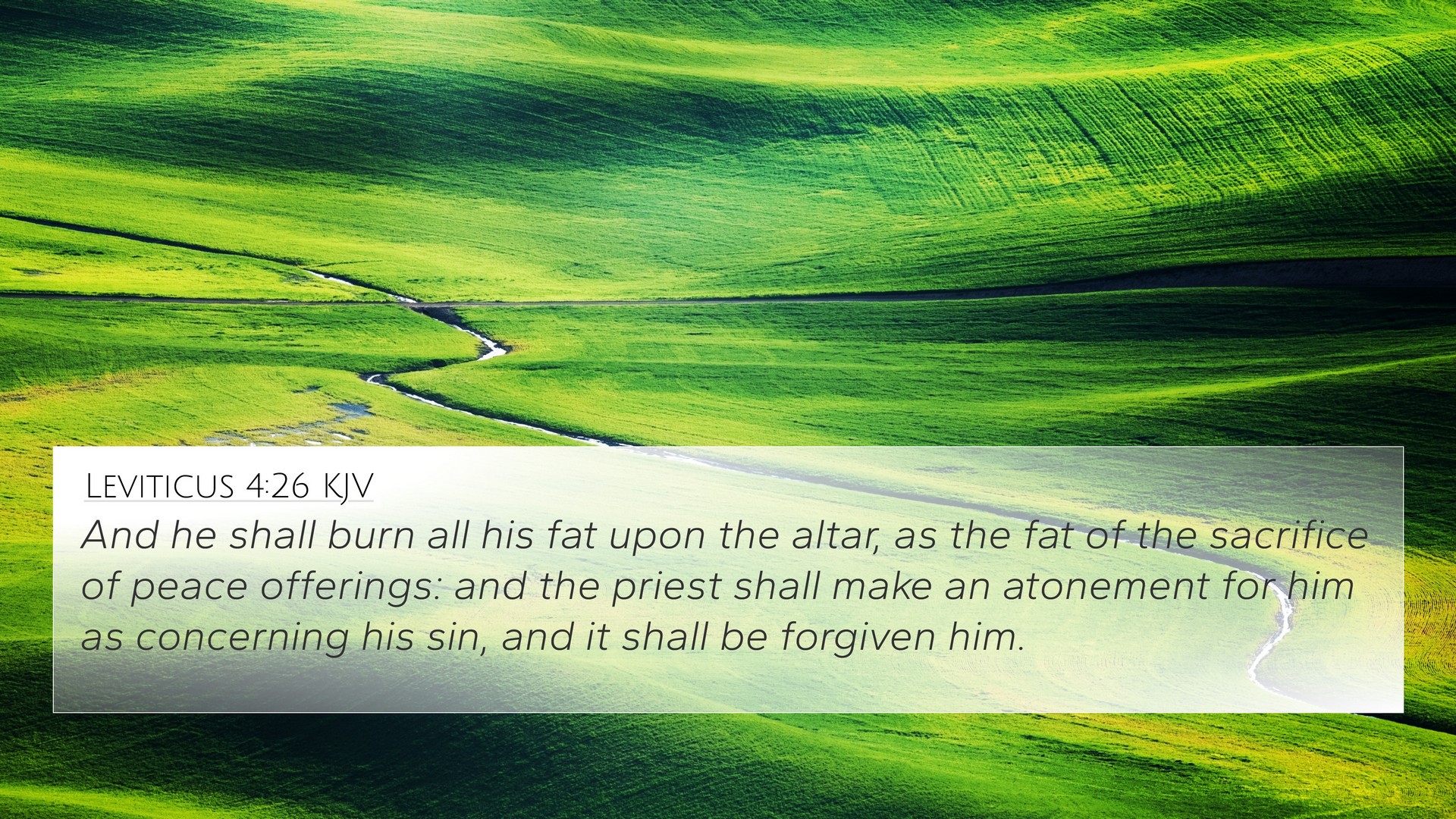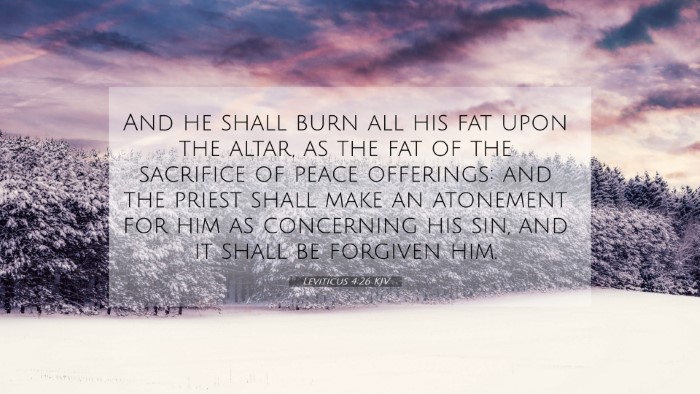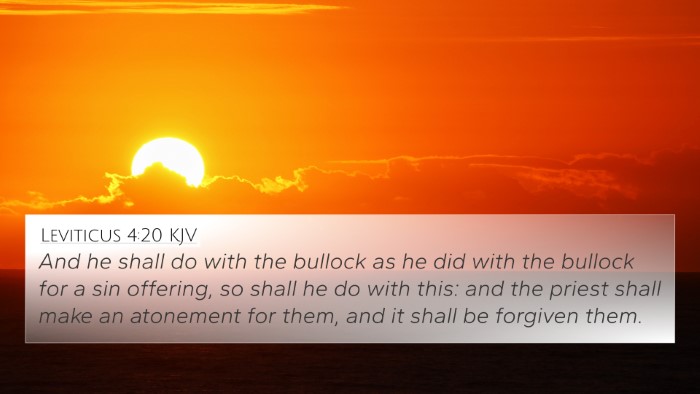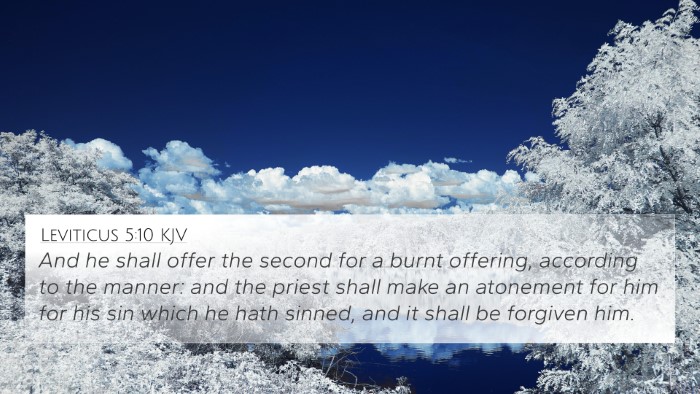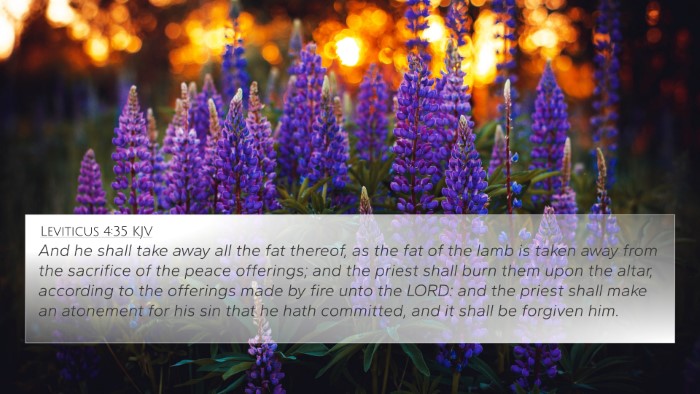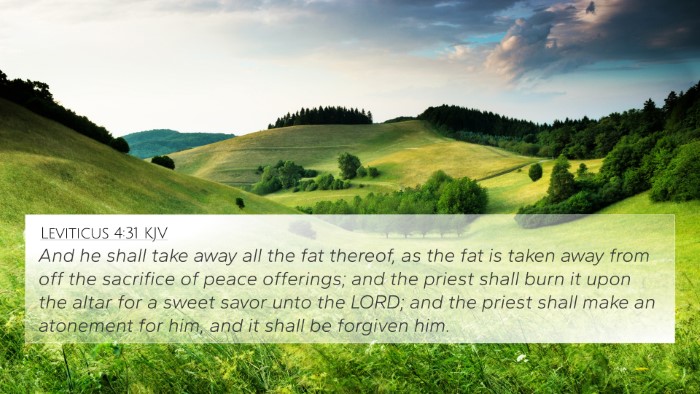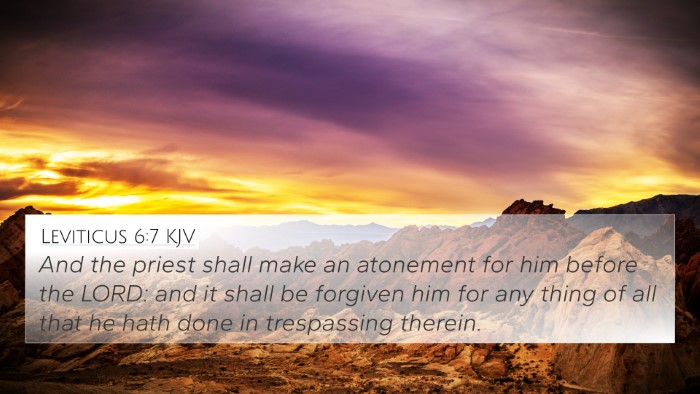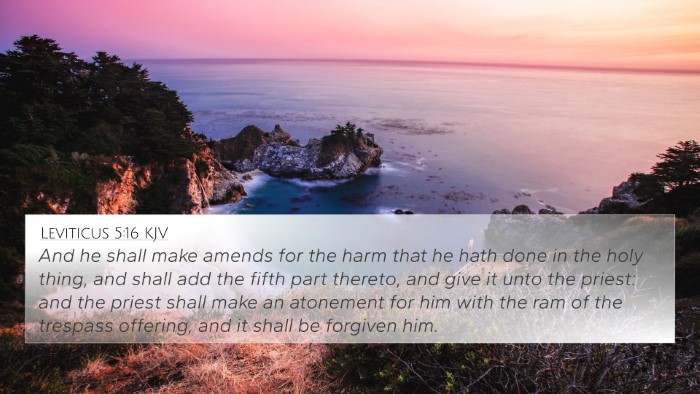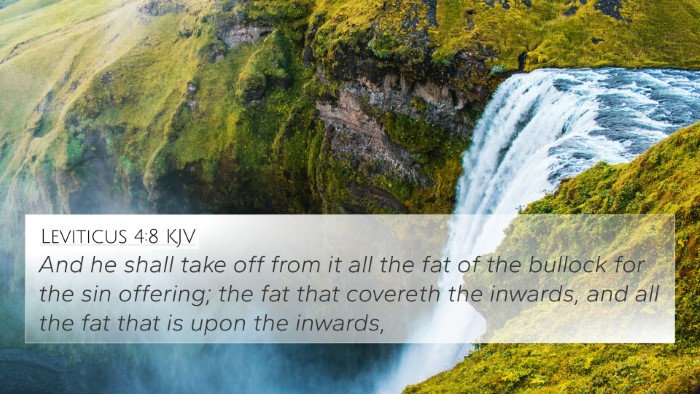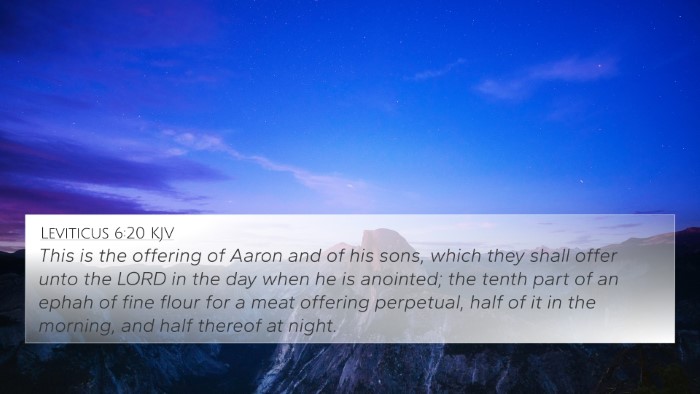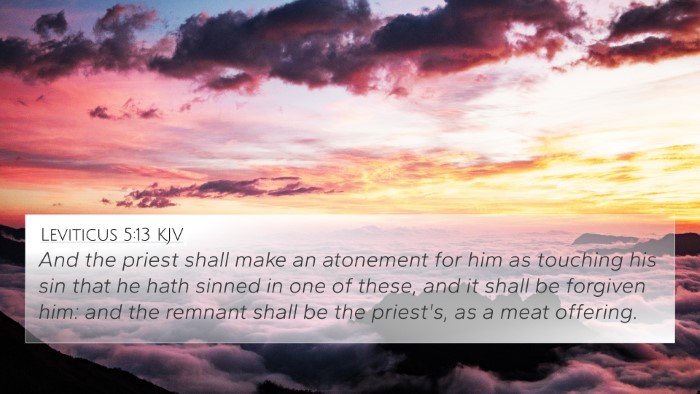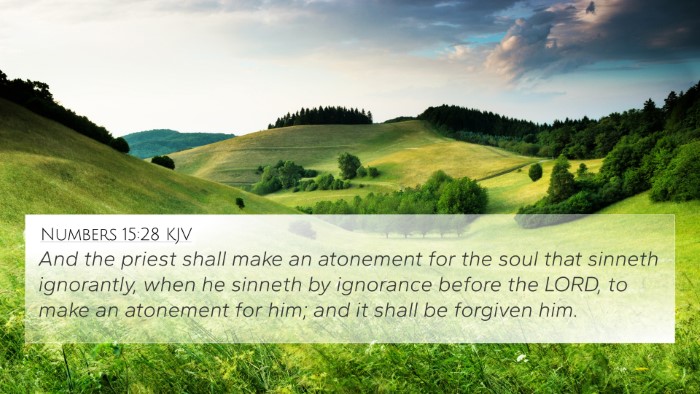Understanding Leviticus 4:26
Bible Verse: Leviticus 4:26
“And all the fat thereof shall he take away, as the fat is taken away from off the sacrifice of peace offerings; and the priest shall burn it upon the altar for a sweet savour unto the LORD; and the priest shall make an atonement for him, and it shall be forgiven him.”
Meaning and Significance
The verse Leviticus 4:26 presents profound insights into the sacrificial system of ancient Israel, reflecting themes of atonement, holiness, and divine acceptance. Each element in this verse carries great theological weight.
Key Concepts:
- Atonement: This action symbolizes the means by which sin can be forgiven, indicating the necessity of sacrifice for the restoration of the relationship between God and His people.
- Divine Acceptance: The reference to "a sweet savour unto the LORD" exemplifies that the sacrifice is pleasing to God, affirming His standards for what is acceptable worship.
- Holiness in Worship: The ritual purity required reflects the holiness of God, emphasizing that worship must adhere to divine instruction.
- Community Responsibility: Offering a sacrifice indicates communal participation in maintaining covenantal fidelity within Israel.
Commentary Insights
This verse has been explored by various commentators, offering layered interpretations that enhance understanding:
- Matthew Henry: He indicates that the fat represents the best parts of the offering and signifies the believer’s best devotion to God. The act of burning signifies total dedication and the fragrant offering to God uplifts the soul toward divine grace.
- Albert Barnes: Emphasizes the methodical nature of how sacrifices were to be conducted, elucidating that the fat's removal is symbolic of the purification should be thorough, marking the necessity of compliance to divine ordinances for atonement.
- Adam Clarke: Focuses on the transition from the Old Testament sacrificial system to the New Testament implications, connecting this verse to Christ’s complete sacrifice, enhancing its understanding as a precursor to ultimate redemption.
Cross-References and Thematic Connections
This verse connects to numerous biblical texts, enriching understanding through comparative analysis:
- Leviticus 1:9: Discusses the acceptable offerings and reiterates the theme of pleasing God with sacrifices.
- Hebrews 9:22: "And almost all things are by the law purged with blood; and without shedding of blood is no remission." This emphasizes the need for blood in atonement.
- Romans 12:1: "I beseech you therefore, brethren, by the mercies of God, that ye present your bodies a living sacrifice, holy, acceptable unto God…" This correlates the concept of sacrifice with worship in the New Covenant context.
- 1 Peter 2:5: Encourages believers to offer spiritual sacrifices acceptable to God through Jesus Christ, linking back to the principles in Leviticus.
- Exodus 29:18: Discusses the burning of sacrifices and their pleasing aroma, enhancing the theme of divine acceptance in offerings.
- John 1:29: "Behold the Lamb of God which taketh away the sin of the world," draws a direct connection between Old and New Testament sacrifices.
- 2 Corinthians 5:21: Ties the theme of sin and atonement, presenting the concept of substitutionary sacrifice through Christ.
- Isaiah 53:5: Prophesizes Jesus as the sacrificial lamb who bears iniquities, linking back to the principles laid in Leviticus.
- Colossians 1:14: Stipulates the redemption and forgiveness made complete through Christ, showing the culmination of sacrificial practices.
- Isaiah 1:11-12: Critiques insincere sacrifices, aligning with the need for genuine worship and heartfelt offerings.
Implementation for Study and Reflection
This verse is a vital nexus for understanding both sacrificial themes in the Old Testament and the fulfillment of those themes in the New Testament through Christ's ultimate sacrifice. For deeper insights, it’s beneficial to employ Bible cross-reference tools, Bible concordances, and Bible reference resources to explore interrelated themes.
Conclusion
Leviticus 4:26 serves as an essential verse highlighting the principles of atonement, acceptable worship, and the holistic dedication required in a relationship with God. Embracing its meanings through scripture cross-referencing promotes a more profound understanding of God's redemptive narrative throughout the biblical text.
